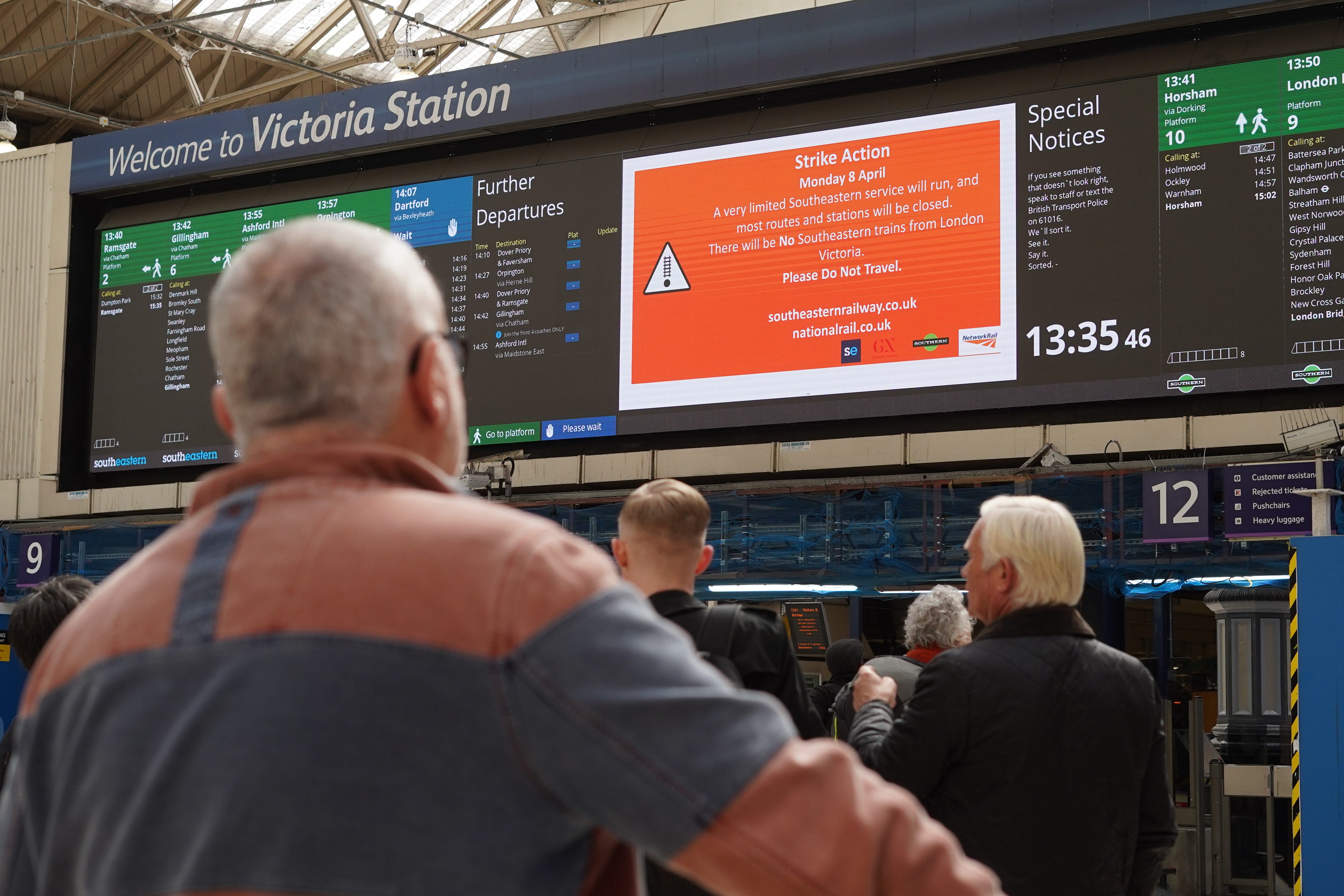Pay offer for train drivers ‘will prevent strikes’, minister says
Aslef and the Government have hailed the offer as a major breakthrough but the Tories say Labour has ‘caved to the unions’.

A new pay offer for train drivers is a “good deal for the taxpayer” because it will end strikes, a Treasury minister has said amid opposition claims it will result in higher fares or tax hikes.
The deal, which is to be voted on by the Aslef union, would include a backdated 5% increase for 2019 to 2022, 4.75% for 2022 to 2024 and a further 4.5% for 2024 to 2025.
Aslef and the Government have hailed the offer as a major breakthrough as Labour seeks to prevent further industrial action by public sector workers, but the Tories have insisted it shows ministers have “caved to the unions”.
There is a direct cost to the economy if the strikes continue
Chief Secretary to the Treasury Darren Jones told broadcasters on Thursday: “Resetting the relationship between Government and public sector workers in this instance is a good deal for the taxpayer because we are preventing strikes from happening.
“There is a direct cost to the economy if the strikes continue and we need to work together in partnership with workers and trade unions and business in order to get sustainable growth back into the economy.
“So this is a good deal for the taxpayer, it’s a good deal for the economy.”
Drivers are being encouraged to accept the offer, which would end a two-year dispute, during which they have taken 18 days of strike action and refused to work non-contractual overtime, causing huge disruption to passengers.
Aslef said it has been the longest-running dispute in the history of Britain’s railways.
General secretary Mick Whelan, who negotiated the deal with Simon Weller, assistant general secretary, and Dave Calfe, executive committee president, said: “We are pleased that after being treated with utter contempt for the last two years by the privatised train companies, and the previous government that was pulling their strings, we finally have a new government that listens and wants to make the railway work for staff, for passengers and for the taxpayer.
“The offer is a good offer, a fair offer, and it is what we have always asked for – a clean offer, without a land grab for our terms and conditions that the companies, and previous government, tried to take in April last year.”
Transport Secretary Louise Haigh said: “The Conservatives were happy to see the taxpayer pay the price as strikes dragged on and on, and passengers suffered. This Labour Government is doing the right thing and putting passengers first.”
Since June 2022, estimates suggest the rail industry missed out on around £850 million in revenue as a result of the strikes, creating a burden for the taxpayer, according the Department for Transport.
The Conservatives accused Labour of having “just caved to the unions”.
Ditching working practice reforms leaves a hole in the finances that can only be filled by higher fares or higher taxes
“A ‘no strings’ deal means this will be paid for by passengers and taxpayers,” shadow transport secretary Helen Whately said.
“Ditching working practice reforms leaves a hole in the finances that can only be filled by higher fares or higher taxes.”
Chancellor Rachel Reeves has said taxes will likely be raised in the Budget and warned “difficult decisions” would need to be made after the previous Tory government left a £22 billion black hole in the public finances.
It is not clear which levies might be hiked and by how much, but Ms Reeves has said Labour will stick to its manifesto promise not to raise national insurance, income tax or VAT.
Bookmark popover
Removed from bookmarks